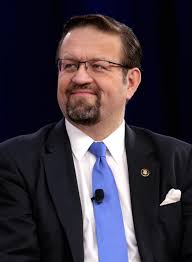
Introduction: The Relevance of Sebastian Gorka
Sebastian Gorka has emerged as a significant figure in political discourse, especially in the context of U.S. conservative movements. As a former deputy assistant to President Trump and commentator, his ideas and opinions resonate within various circles. Understanding Gorka’s influence is essential for comprehending contemporary political dynamics, particularly the rise of populism and right-wing ideology in North America.
Career and Background
Gorka was born in Hungary and later moved to the United States, where he earned his PhD in political science. He gained recognition in conservative media for his commentary on national security and terrorism, which eventually led him to his position in the Trump administration. During his tenure, Gorka was an advocate for a strong, hardline approach to immigration and counter-terrorism, emphasizing the threats posed by radical Islamic extremism.
Controversies and Criticism
While Gorka has garnered a following, his tenure in the Trump administration came with significant controversy. Critics have accused him of promoting divisive rhetoric and supporting far-right ideologies. He faced backlash for his connections to groups that have been labeled as extremist, raising questions about his views on nationalism and identity politics. Despite this, Gorka continues to be a vocal supporter of conservative views in media, including appearances on Fox News and other right-leaning platforms.
Current Activism and Impact
In the years following his departure from the White House, Gorka has remained active in political commentary and analysis. He hosts the “America First” radio show and has authored several books, advocating for a more hardline approach to national issues. His influence continues to shape the conservative landscape, particularly among Trump supporters and nationalist activists. Gorka’s messaging aligns with a growing sentiment of skepticism towards mainstream political establishments and highlights grievances surrounding immigration and national security.
Conclusion: The Significance of Gorka’s Influence
As the political landscape evolves, figures like Sebastian Gorka remain pivotal in shaping conversations around nationalism, immigration, and security. His blend of academic background and media presence allows him to reach a wide audience, ensuring that his views resonate across various platforms. For readers seeking to understand the currents of modern conservatism in the United States, Gorka’s contributions provide an essential lens through which to analyze the intersection of politics and media today.



